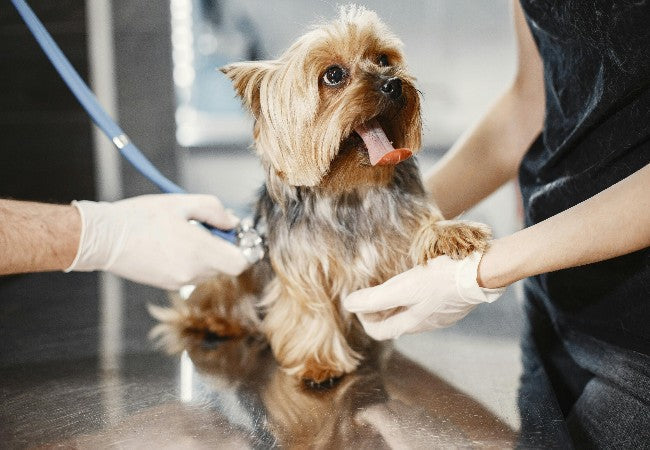Seeking a Second Opinion from Your Vet: Smart Steps for Pet Parents 2025 🔍🐶

In this article
Seeking a Second Opinion from Your Vet: Smart Steps for Pet Parents 2025 🔍🐶
By Dr. Duncan Houston BVSc
When your canine companion faces a serious condition, unclear diagnosis, or uncertain treatment, it’s reasonable—and often wise—to seek a second opinion. This vet-approved 2025 guide shows when and how to do it respectfully, gather necessary records, and find the right specialist or tele-vet to ensure the best possible care. 🩺
1️⃣ When to Consider Another Vet
- Worried about prognosis: Serious illnesses like cancer, organ failure, neurologic issues or complex orthopedic conditions often warrant a specialist's view.
- Treatment concerns: High-cost, invasive, or unfamiliar procedures justify exploring alternatives.
- Unresolved issues: Persistent symptoms despite treatment or a mismatch between your observations and diagnosis.
- Need specialist insight: When your vet recommends a referral or if complex diagnostics or surgery are needed.
2️⃣ How to Approach the Conversation
- Start with openness: “I’d feel more confident if we confirm this decision with a specialist. Can you recommend someone?”.
- Frame your reasoning kindly—focus on your pet's benefit: “It’s serious, and I’d like extra clarity.”.
- Vets generally don’t mind second opinions—many consider them part of teamwork.
3️⃣ Collecting Your Pet’s Medical Records
- Ask your vet to share records, test results, X-rays—or ask for copies yourself.
- Compile a timeline of symptoms, treatments tried, and results—handy for new vets.
4️⃣ Choosing the Right Second Vet
- Generalist vs specialist: For complex issues, see a boarded specialist (cardiology, oncology, etc.); your primary vet can refer.
- Tele‑veterinarians: Some cases benefit from online second opinions—just share records in advance.
- Local alternatives: Select a different clinic for a fresh perspective—avoids bias if all vets know each other.
5️⃣ Coordinating Care Smoothly
- Communicate with both vets—ensure everyone has the medical history.
- Your primary vet often remains involved—specialist evaluation doesn’t replace their role.
- Ask specialists if they’ll share feedback—this shared approach helps coordinated care.
6️⃣ Managing Costs & Emergencies
- Specialist visits cost more; insurance may help – ask ahead.
- In emergencies, start treatment first—save second opinions for after stabilization.
📊 Second Opinion at a Glance
| Step | Action | Goal |
|---|---|---|
| Recognize need | Serious prognosis, cost, lack of progress | Ensure best care plan |
| Ask respectfully | Use kind, benefit-focused phrases | Avoid conflict |
| Gather records | Download labs, images, timeline | Build clear case |
| Select vet | Local, specialist, or tele‑vet | Get fresh, expert insight |
| Coordinate care | Share info between vets | Unified treatment |
| Handle cost | Check insurance, postpone second opinion in emergencies | Manage budget |
🔍 Final Thoughts
Seeking a second opinion is a responsible choice—not a sign of doubt in your vet. It’s about ensuring the best outcomes for your pet through clarity, collaboration, and confidence. In 2025, empower your care decisions with the right questions, documentation, and team-based veterinary care. 🐕❤️
Need help finding a specialist, transferring records, or prepping for a tele‑consult? Download the Ask A Vet app for guided support every step of the way. 📱🐾






